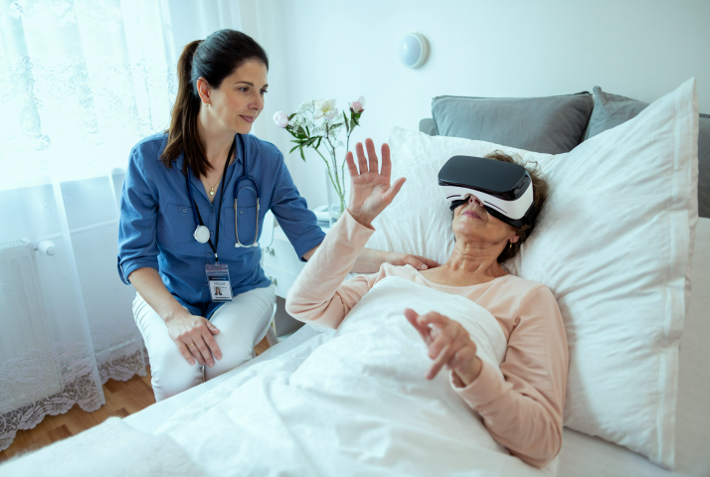
Genomics and Health: Understanding Your DNA for Better Health.
Mental health care is undergoing a transformative shift, driven by advancements in technology, evolving treatment modalities, and a growing recognition of the importance of mental well-being. This article explores the future of mental health care, focusing on innovative therapies and support systems that are revolutionizing the way we understand and address mental health challenges

Moreover, virtual reality (VR) therapy is gaining traction as a novel approach to treating mental health conditions such as anxiety, PTSD, and phobias. VR technology immerses patients in realistic environments where they can confront and overcome their fears in a controlled and therapeutic setting. By providing a safe and immersive experience, VR therapy offers a unique opportunity for patients to engage in exposure therapy and cognitive-behavioral interventions.
In addition to technology-driven innovations, the future of mental health care also encompasses holistic and integrative approaches to treatment. Mindfulness-based interventions, such as mindfulness meditation and yoga, have gained popularity as effective tools for managing stress, anxiety, and depression. These practices promote self-awareness, emotional regulation, and resilience, empowering individuals to cultivate greater mental well-being and inner peace.
Furthermore, peer support networks and online communities are playing an increasingly important role in mental health care, providing individuals with a sense of belonging, understanding, and validation. Peer support groups offer a space for individuals with shared experiences to connect, share resources, and provide mutual encouragement and support. Online platforms and social media channels provide additional avenues for peer support and community engagement, fostering connections and reducing feelings of isolation and loneliness.
Another area of innovation in mental health care is the integration of personalized and precision approaches to treatment. Advances in genetics, neuroscience, and digital phenotyping are enabling healthcare providers to identify biomarkers and risk factors associated with mental health conditions, leading to more targeted and individualized interventions. By tailoring treatments to the specific needs and characteristics of each patient, healthcare providers can improve treatment outcomes and optimize patient care.
Despite these advancements, challenges remain in the delivery of mental health care, including issues related to access, affordability, and stigma. Efforts to expand access to mental health services, increase awareness and education, and reduce barriers to care are essential for ensuring that all individuals have access to the support they need to thrive.
DIn conclusion, the future of mental health care is bright, with innovations in therapy and support offering new hope and opportunities for individuals struggling with mental health challenges. By harnessing the power of technology, embracing holistic and integrative approaches, and promoting personalized and precision treatments, we can create a future where mental well-being is prioritized and supported for all.